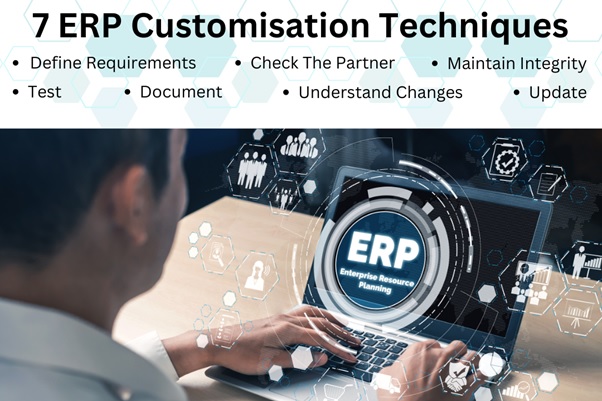Enterprise Resource Planning (ERP) software customisation can help businesses meet their specific needs and increase productivity. ERP software can automate various business processes, such as accounting, inventory management, and customer relationship management, and provide valuable data to help make better business decisions. It can be complex, but with good techniques, businesses can achieve a successful outcome. Here are some tips for successful ERP software in Singapore:
- Before starting any ERP software customisation, it is essential to define the specific business requirements. The requirements should be clear and precise, so the software developers can understand what the business needs.
- The software development partner should have experience in ERP software customisation and a good understanding of the business requirements. They should also be able to provide scalable and easy-to-maintain solutions.
- Customisation should not compromise the software’s core functionality. Any modifications made to the software should be done in a way that maintains its integrity and reliability, such as how you want the Sage 300 Cloud to appear.
- It is crucial to test the customisation before deploying it in a production environment because it can help identify any issues and fix them before it affects the business operations.
- Documenting the customisation is critical for maintaining the software’s long-term stability. It can help future software developers understand the customisations made and make any necessary changes without affecting the software’s core functionality.
- Customisation can result in changes to the user interface and user experience. Training should be provided to users to ensure they understand the changes and how to use the software effectively.
- ERP software in Singapore is an ongoing process. As business needs change, customisations may need to be updated or new ones added. Regular maintenance of the software is essential to ensure it continues to meet business requirements.
In conclusion, ERP software customisation can help businesses meet their specific needs and increase productivity. It requires careful planning and execution to ensure the customisations do not compromise the software’s core functionality. Choosing the right software development partner, testing the customisation, documenting the changes, providing training, and regularly maintaining the software are all critical components of successful ERP software customisation. With the right techniques and approach, businesses can customise their ERP software and achieve their business goals.
If you wish to know more about using a PSG grant for accounting software or any other related matter, check the website of Acsolv Consult to learn more about their viable client solutions.



